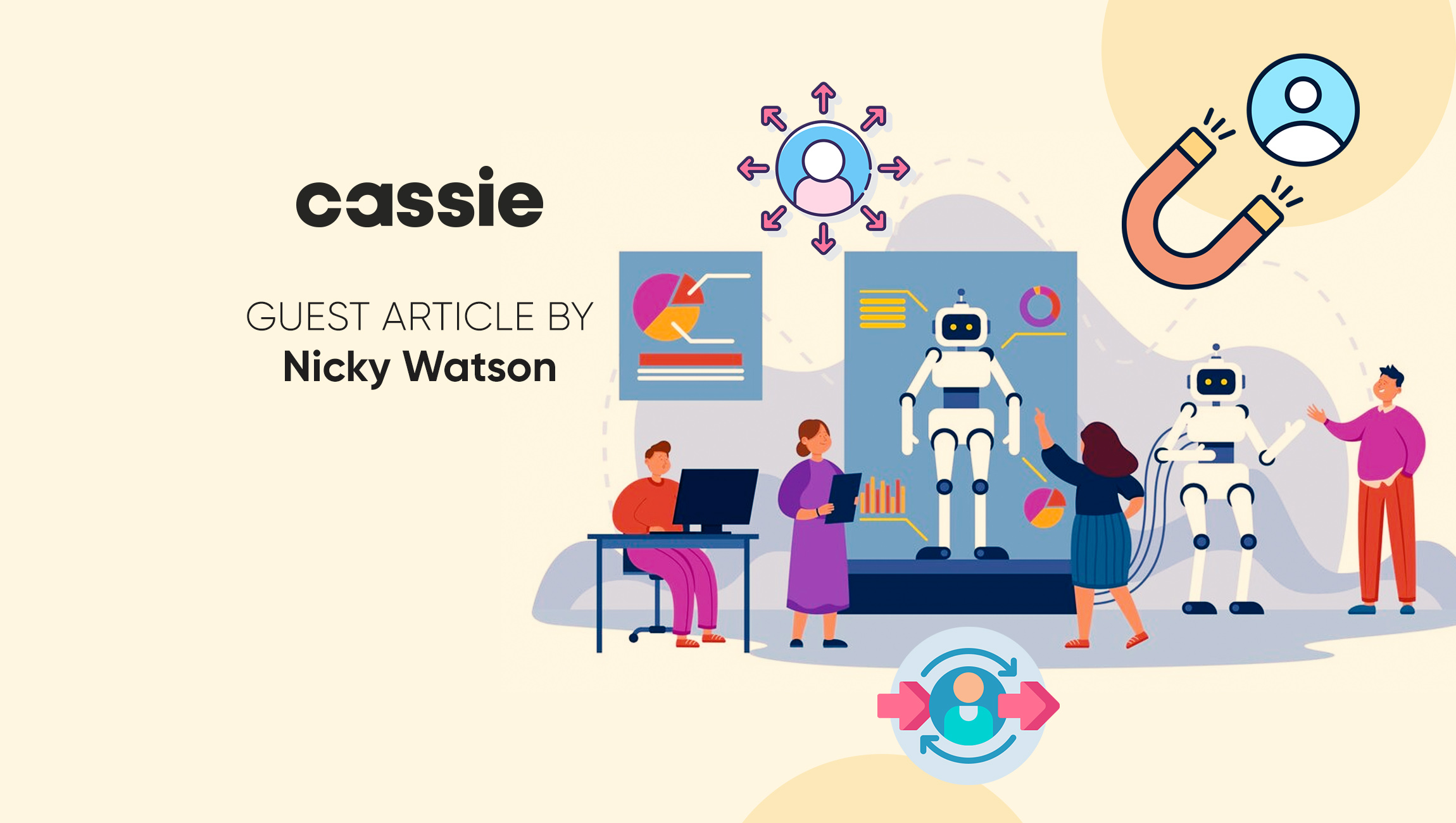By 2025 individuals and companies around the world will produce an estimated 463 exabytes of data each day – a massive uptick, compared to less than three exabytes a decade ago. In tandem, artificial intelligence (AI) has boomed with a force akin to the dawn of the internet age. When these trends are coupled with a jump in data breaches (like those at AT&T and American Express, in the last year), customers and businesses alike have cause for concern.
As AI proliferates the market and evolves business operations at a breakneck speed, the subsequent data being collected at every touchpoint creates both opportunity and concern. The ongoing advancement of AI creates more digital touchpoints for users, which equates to a larger quantity of online data collection and governance.
On one hand, providing more first-party data means consumers may finally experience that highly personalized online experience they’ve been craving. But, on the other hand, increasing AI usage breeds distrust amongst consumers. As global businesses are racing to keep up with user expectations on personalization and privacy, more of their customers are growing increasingly uneasy.
What does this mean for marketing and sales teams? Let’s dive in.
The role of AI in customer privacy concerns
Increasing AI usage breeds distrust amongst consumers. The challenge is to balance business needs to move fast while simultaneously ensuring customer data is completely protected. This is a growing concern for consumers, especially as 92% of respondents to a recent study shared that they believe companies prioritize profits over data privacy – a trend that has increased in the last 12 months in tandem with the rise of AI.
Addressing these concerns is paramount to maintain user trust and confidence, as well as to comply with data protection regulations. Sharing information about data protection measures, privacy policies, and emphasizing the steps taken to secure user data can help build trust and alleviate concerns.
Marketing Technology News: MarTech Interview with Eli Finkelshteyn, Founder and CEO at Constructor
Why does this matter to marketing and sales teams?
In recent years, there has been a distinct increase in user expectations – which has required customer-facing teams to deliver highly personalized outreach. For a long time, go-to-market (GTM) teams have leveraged first-party data to personalize ads, limit how often the ad is shown to a user, mute ads a user has chosen to stop seeing, and measure the effectiveness of ads.
With this level of insight at their fingertips, these teams had a leg up in creating highly personalized outreach that makes prospective buyers feel seen at every stage of the buyer journey. So much so, that it has become table stakes. Notably, almost half (48%) of consumers globally say a lack of personalized content sways them to opt out of marketing emails from brands.
But at the other end of the spectrum, diving too deep into personalization creates a sense of uneasiness amongst customers – especially when faced with the reality that data breaches are increasingly commonplace. Automated decisions by AI’s also have potentially huge consequences for individuals. As a result, nearly all (93%) of consumers are concerned about the security of their personal information online. Addressing this concern is critical to ensure user trust and confidence in the age of AI.
Unsure of where to begin? Here are a few tactics to get started:
- Prioritize Transparency: There is a widespread consumer perception of unethical data practices within the corporate realm. In fact, many believe that most companies sell customer data without consent – highlighting a gap between consumer expectations of data privacy and their perceptions of corporate behavior. To fight this stigma and regain trust, businesses must provide clear and concise information about how they process customer data and invest in data management tools.
- Educate Customers: The fact is that over half of U.S. consumers are unsure how to improve their data privacy indicates a significant knowledge gap in understanding privacy-enhancing measures. A lot of users actually believe that using “incognito” mode or rejecting cookies is among the best ways to protect their data. This spotlights a need for clearer communication and education about more robust privacy practices beyond browser settings.
- Enable Clear Consent: It’s critical to offer customers more control over their data through privacy preferences and consent management platforms to respect their privacy. By prioritizing consumer empowerment, businesses not only build stronger relationships with their customer base but also mitigate the risk of data misuse – in turn fostering a more ethical and sustainable digital ecosystem. Informing consumers on their data rights is crucial for businesses to build trust and protect personal data in the digital age, as many consumers remain unaware of their rights, leading to an erosion of trust.
By prioritizing these efforts – which, in turn, proves to customers that businesses are prioritizing their privacy – marketing and sales teams can foster a relationship built on transparency and accountability. Not only will this enable personalized outreach at scale, it will also strengthen brand loyalty and drive growth with a satisfied customer base.
Marketing Technology News: A Proven AI Playbook for Marketing Teams











